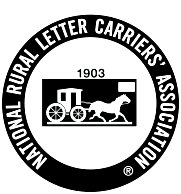What is health care fraud and abuse?
-
- Fraud is an intentional deception or misrepresentation that someone makes, knowing it is false, that could result in an unauthorized payment or benefit. The attempt itself is fraud, regardless of whether it is successful.
- Examples include but are not limited to the following:
- Billing for services that were never rendered
- Misrepresenting who provided the services, altering claim forms, electronic claim records or medical documentation
- Falsifying a patient’s diagnosis to justify tests, surgeries or other procedures that aren’t medically necessary
- Waste is the expenditure, consumption, mismanagement, use of resources, practice of inefficient or ineffective procedures, systems, and/or controls to the detriment or potential detriment of entities. Waste is generally not considered to be caused by criminally negligent actions but rather the misuse of resources. Waste can be committed by a contractor, a subcontractor, a provider, and/or a FEHB beneficiary/enrollee.
- Examples include but are not limited to the following:
- Performing large number of laboratory tests on patients when the standard of care indicates that only a few tests should have been performed on each of them
- Medication and prescription refill errors
- Failure to implement standard industry waste prevention measures
- Abuse typically involves incidents or practices of providers that are inconsistent with accepted medical, business, or fiscal practices. These practices may, directly or indirectly, result in unnecessary costs, improper payments, or payments for services that fail to meet professionally recognized standards of care, or that are medically unnecessary.
- Examples include but are not limited to the following:
- Misusing codes on the claim (i.e., the way the service is coded on the claim does not comply with national or local coding guidelines or is not billed as rendered)
- Waiving patient co-pays or deductibles and over-billing the FEHB plan
- Billing for items or services that should not be paid for by the FEHB program such as never events
Examples of health care fraud and abuse
-
- Billed services not performed by a provider of care
- Intentionally misrepresenting facts regarding the payment of benefits
- Routinely waiving co-payments or deductibles
- Billing for medically unnecessary items or services
- “Unbundling” claims, or separate billing procedures instead of using a more appropriate global billing procedure
- Upcoding claims, or billing at a higher rate than is appropriate for the item or service provided
- Misrepresenting facts affecting eligibility for benefits, such as: employment status, healthy history, marital or student status, identity
Tips to help detect and prevent health care fraud and abuse
-
- Review your Explanation of Benefits (EOB) and compare to the services billed by your provider of care. If there is a difference between your EOB and medical bill, contact RCBP.
- Protect your health insurance information and do not share your health insurance plan card with anyone other than an authorized health care provider or your insurance plan.
- Be suspicious of free medical services that require your insurance information.
- Inform us of any provider of care that routinely waives your copayments or deductibles.
- Visit OPM.gov for more tips on identifying, preventing and reporting fraud.
Reporting suspected health care fraud and abuse
Call our Special Investigations Unit (SIU) dedicated hotline to report suspected fraud and/or abuse activities at 1-866-806-7020 (TTY: 711) and select option 1. Simply leave a message and it will be reviewed promptly. You may also contact our customer service at 1-800-638-8432 to make a report. If we do not resolve the issue you may call the Office of Personnel Management (OPM)-Office of the Inspector General (OIG) health care fraud hotline at 1-202-418-3300.
For more information on health care fraud and abuse, refer to the official Plan brochure.
Fraud and abuse websites
Visit the U.S. Office of Personnel Management/Office of the Inspector General website
Visit the National Health Care Anti-Fraud Association website


